Featured Publications
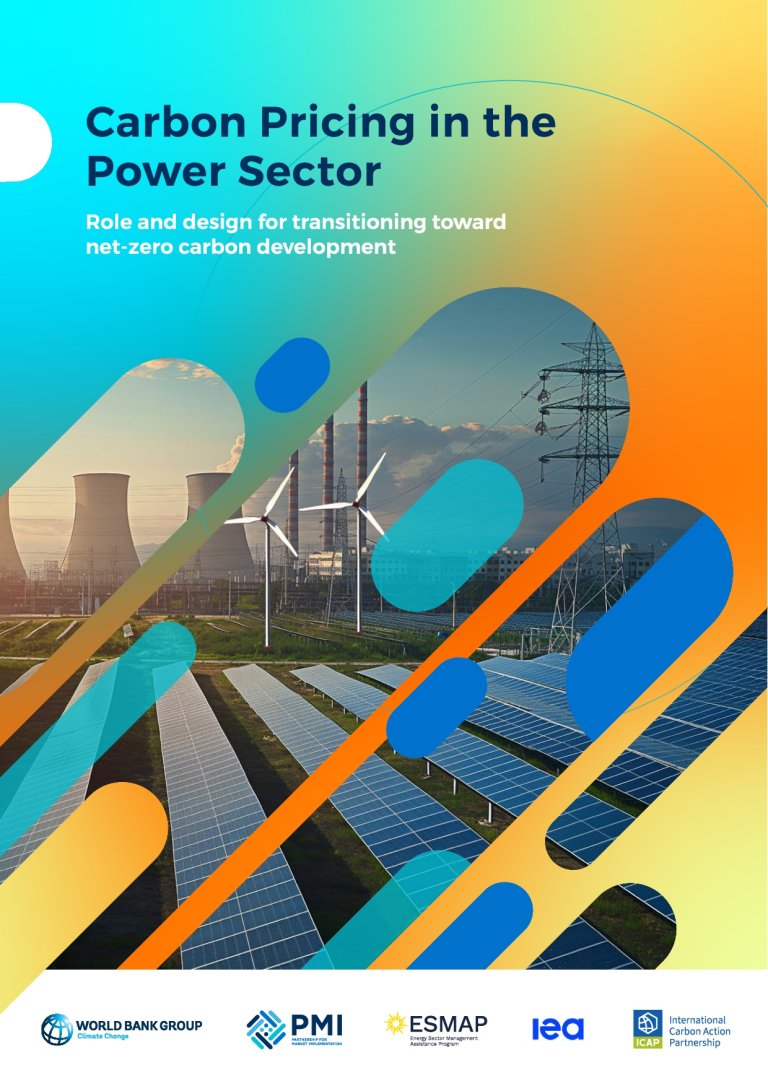
Carbon Pricing in the Power Sector: Role and design for transitioning toward net-zero carbon development
This report delves deep into the power sector value chain dynamics, demonstrating how well-designed carbon pricing instruments can be instrumental in helping countries reach their decarbonization goals. Focusing on how decisions are made in diverse power sector models in several developing countries, this report establishes that the CPI must be carefully positioned at the right regulation point in the power sector’s value chain—rather than merely...
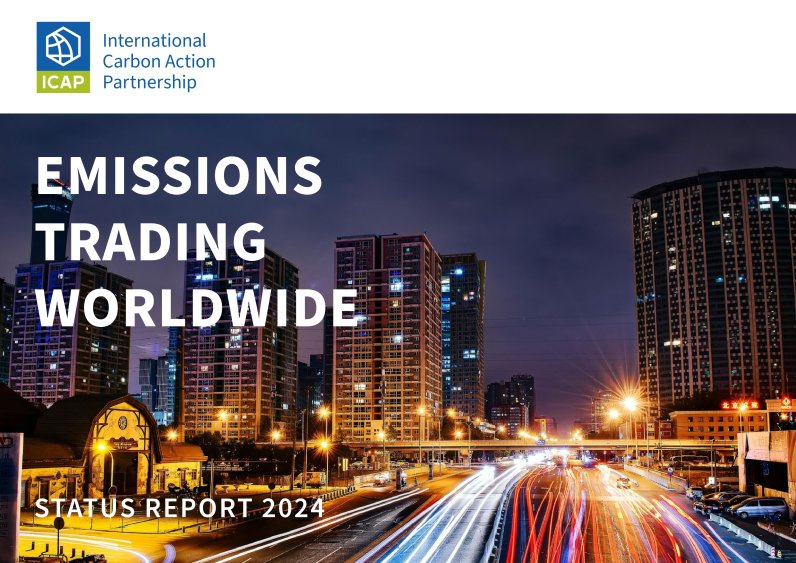
Emissions Trading Worldwide: 2024 ICAP Status Report
Check out the 2024 ICAP Status Report with the latest developments in emissions trading around the world.
The report includes:
🔹 State and outlook of emissions trading worldwide
🔹 Detailed factsheets on every system in operation, under development, and under consideration
🔹 Infographics that visualize the systems' characteristics
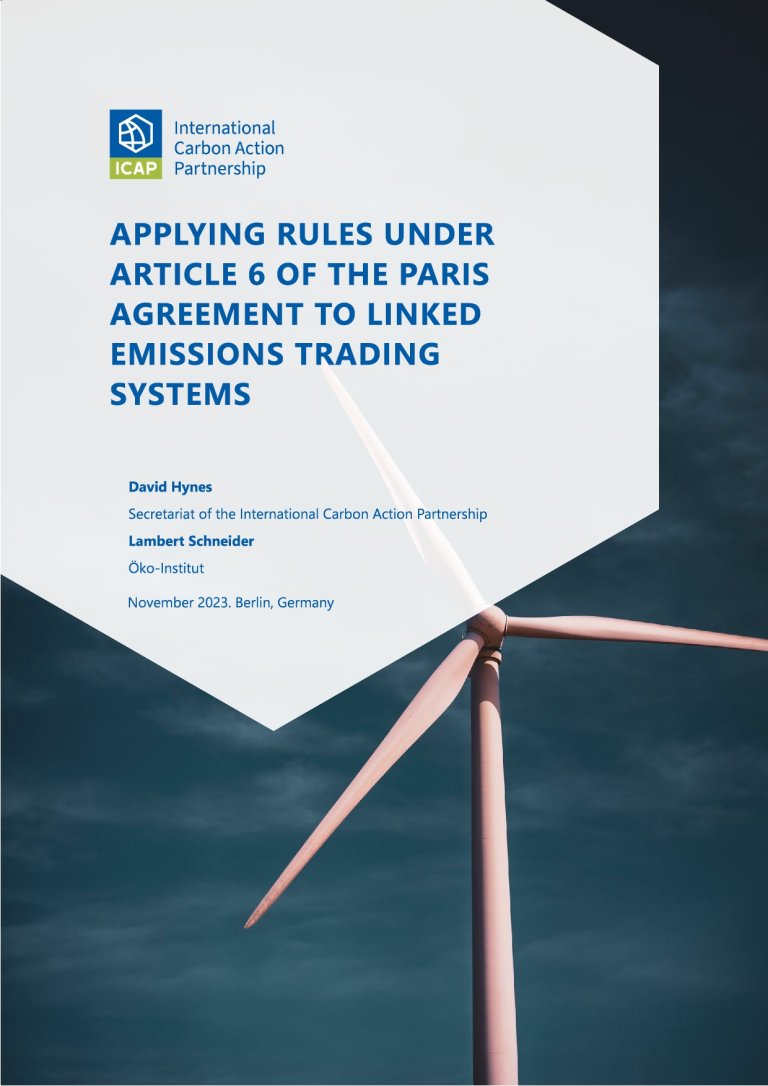
Applying Rules under Article 6 of the Paris Agreement to Linked Emissions Trading Systems
This paper explores how the Article 6.2 rules agreed at COP26 could be applied to an international link of two ETSs, including how to account for the changes in emissions, addressing the challenges in determining when changes in emissions occur within an ETS, and options to generate finance for adaptation and “net” mitigation from the link.
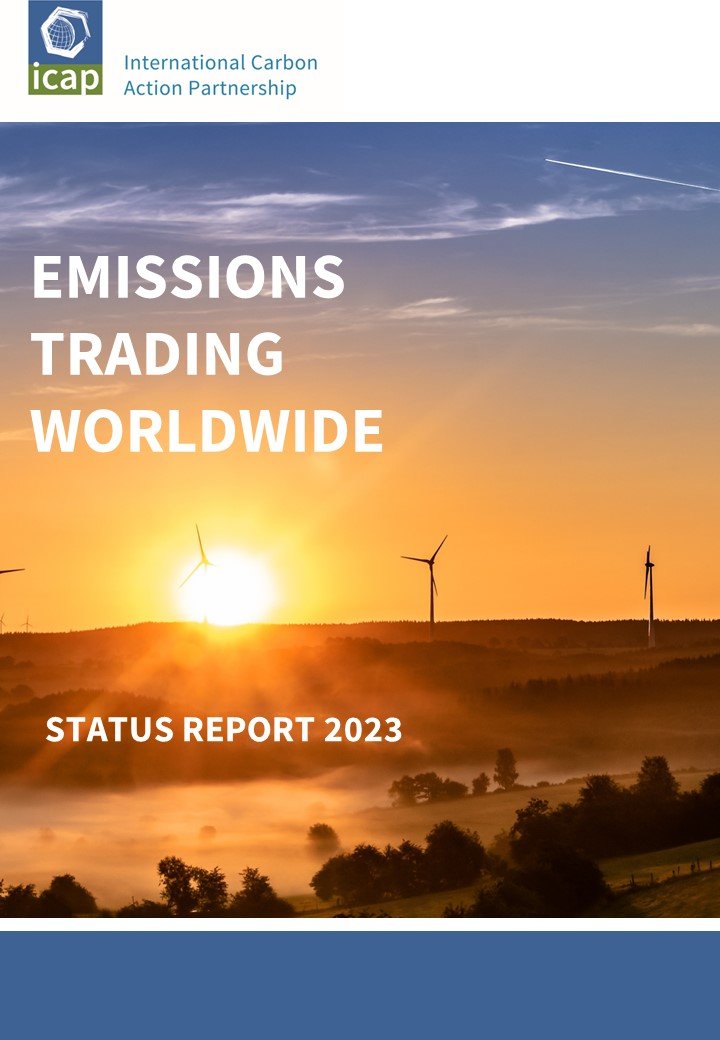
Emissions Trading Worldwide: 2023 ICAP Status Report
Check out the 2023 ICAP Status Report with the latest developments in emissions trading around the world.
The report includes:
🔹 comprehensive snapshot of the latest ETS developments
🔹 up-to-date factsheets on all systems
🔹 infographics that visualize the systems' characteristics
🔹 in-depth articles from policymakers and carbon market experts
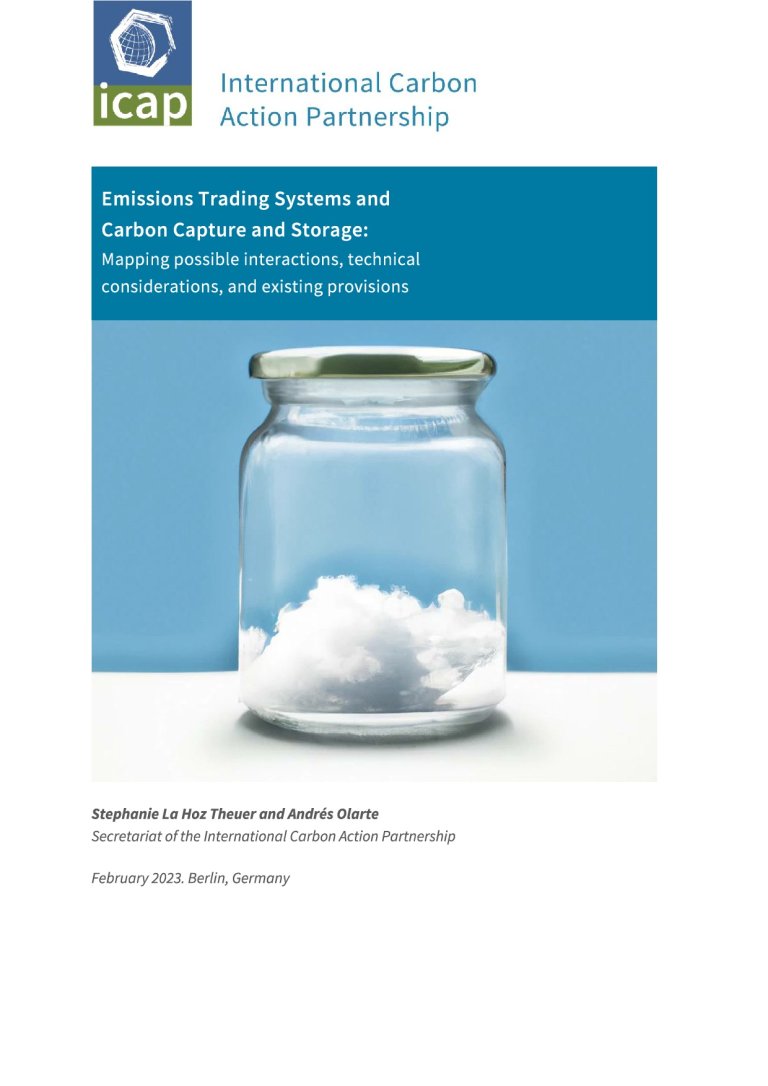
Emissions Trading and Carbon Capture and Storage: Mapping possible interactions, technical considerations, and existing provisions
This report explores how CCS is treated in different ETSs around the world; if and how ETSs could play a role in incentivizing the development and deployment of CCS applications; and the challenges and opportunities in developing the required regulation in this context.
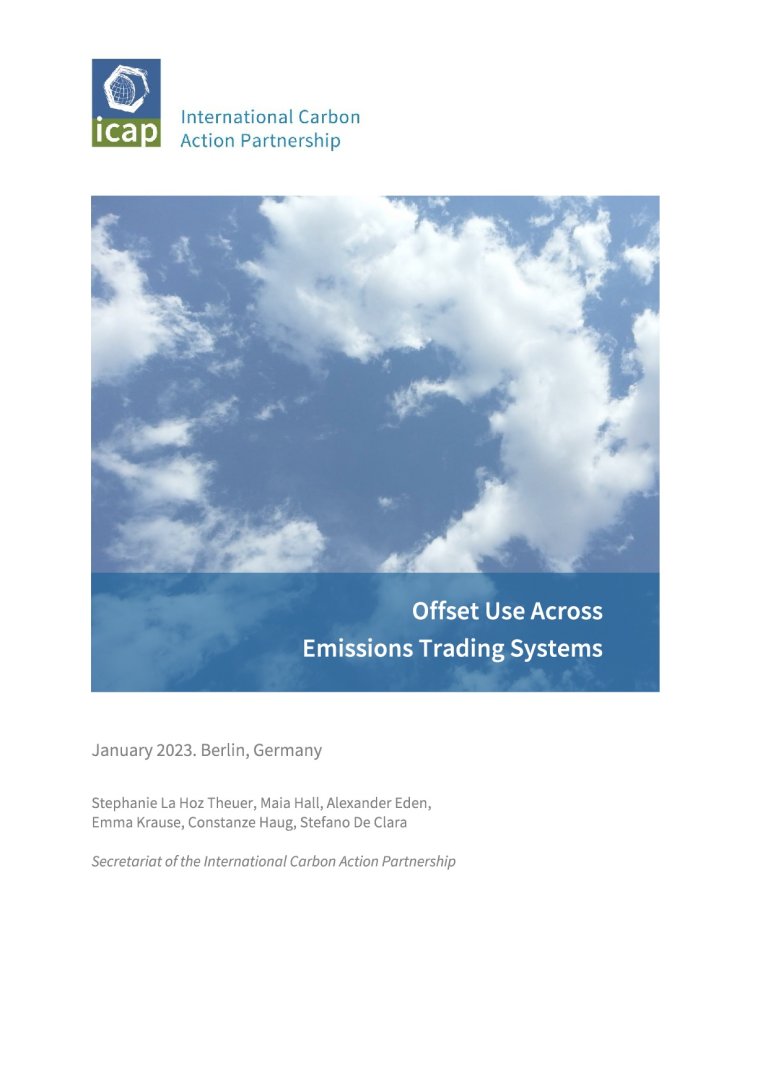
Offset Use Across Emissions Trading Systems
As market-based instruments, emissions trading systems are inherently flexible, as entities can decide to reduce their own emissions or buy emissions allowances from the market. Carbon offsets (or simply ‘offsets’) are a tool to further increase flexibility in reaching climate targets under ETSs, as they offer sectoral and geographical flexibility for jurisdictions to reduce greenhouse gas emissions outside of the scope of their ETS. This report...
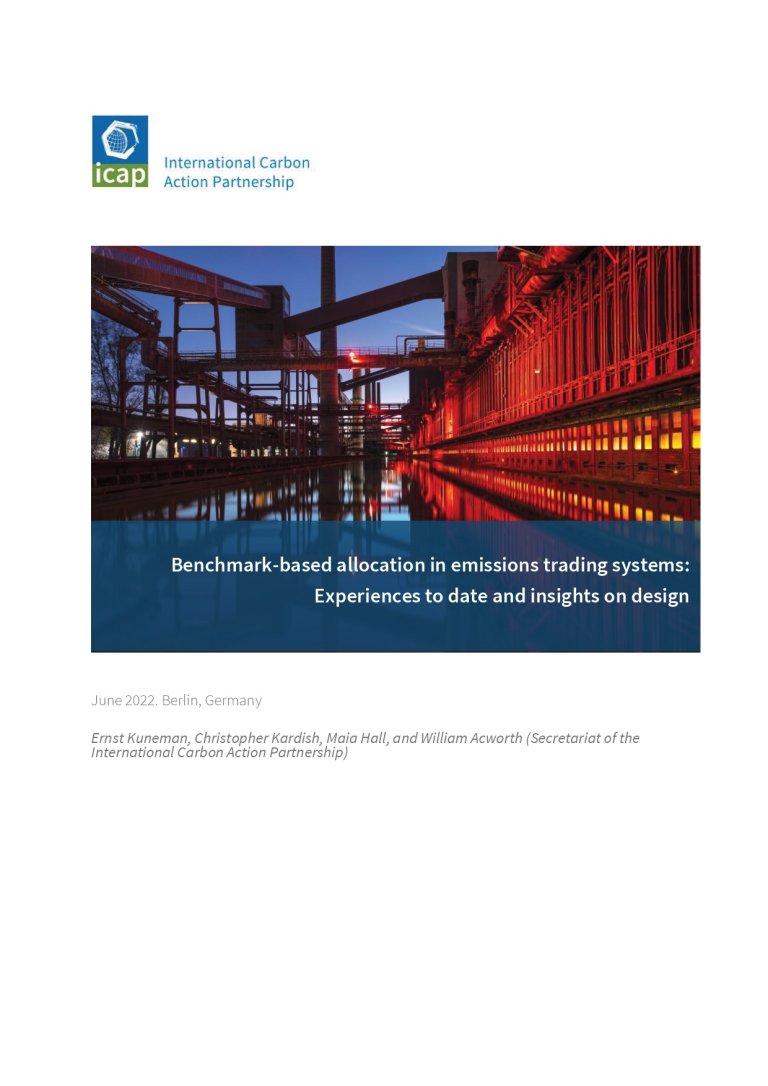
Benchmark-based allocation in emissions trading systems: Experiences to date and insights on design
Benchmarking can protect against carbon leakage while setting incentives to reduce emissions, but their design entails complex trade-offs. This paper explores benchmark-based industrial allocation design and experiences, using insights from existing ETSs, and their implications for abatement and low-carbon investment incentives.
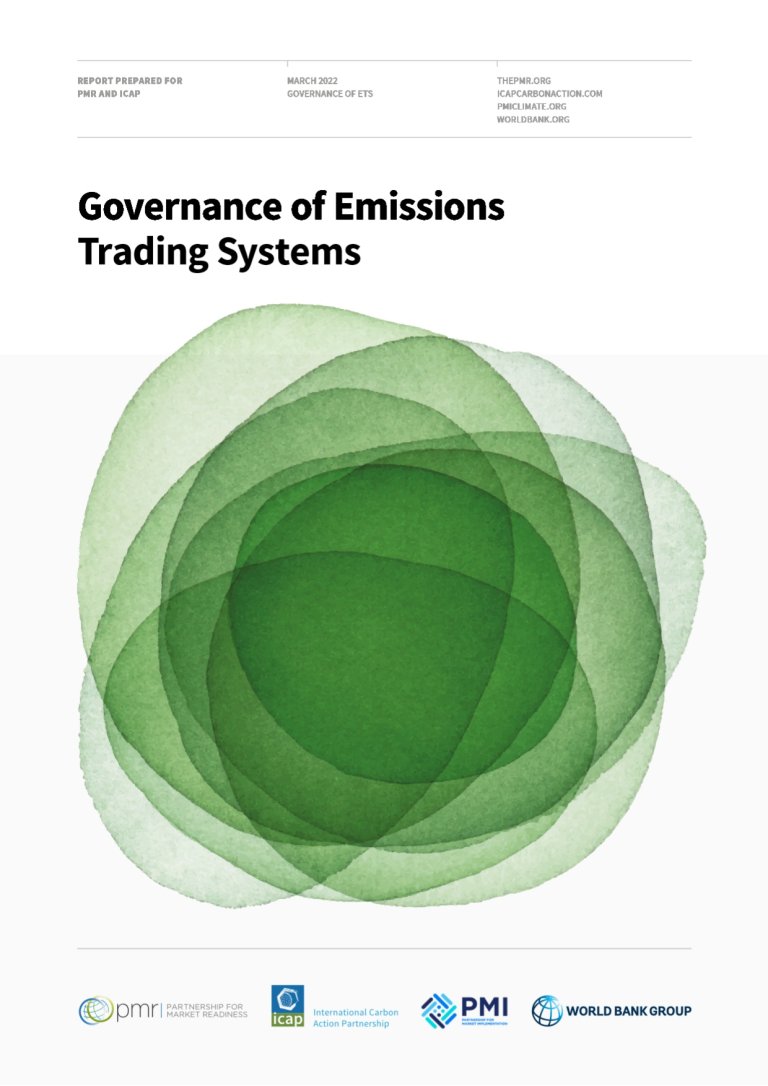
ICAP & World Bank Paper: Governance of Emissions Trading Systems
ICAP and the World Bank jointly published a paper on the governance of emissions trading systems.
-
DateCategoryPapers & ReportsCover Image
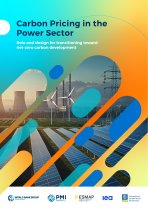
 DateCategoryPapers & Reports
DateCategoryPapers & ReportsCarbon Pricing in the Power Sector: Role and design for transitioning toward net-zero carbon development
Learn moreTeaser + metatagsThis report delves deep into the power sector value chain dynamics, demonstrating how well-designed carbon pricing instruments can be instrumental in helping countries reach their decarbonization goals. Focusing on how decisions are made in diverse power sector models in several developing countries, this report establishes that the CPI must be carefully positioned at the right regulation point in the power sector’s value chain—rather than merely …
-
DateCategoryPapers & ReportsCover Image
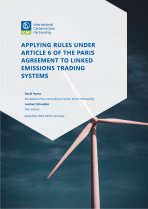
 DateCategoryPapers & Reports
DateCategoryPapers & ReportsApplying Rules under Article 6 of the Paris Agreement to Linked Emissions Trading Systems
Learn moreTeaser + metatagsThis paper explores how the Article 6.2 rules agreed at COP26 could be applied to an international link of two ETSs, including how to account for the changes in emissions, addressing the challenges in determining when changes in emissions occur within an ETS, and options to generate finance for adaptation and “net” mitigation from the link.
-
DateCategoryPapers & ReportsCover Image
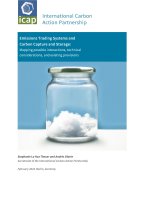
 DateCategoryPapers & Reports
DateCategoryPapers & ReportsEmissions Trading and Carbon Capture and Storage: Mapping possible interactions, technical considerations, and existing provisions
Learn moreTeaser + metatagsThis report explores how CCS is treated in different ETSs around the world; if and how ETSs could play a role in incentivizing the development and deployment of CCS applications; and the challenges and opportunities in developing the required regulation in this context.
-
DateCategoryPapers & ReportsCover Image
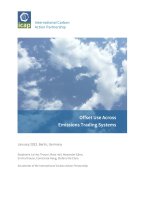
 DateCategoryPapers & Reports
DateCategoryPapers & ReportsOffset Use Across Emissions Trading Systems
Learn moreTeaser + metatagsAs market-based instruments, emissions trading systems are inherently flexible, as entities can decide to reduce their own emissions or buy emissions allowances from the market. Carbon offsets (or simply ‘offsets’) are a tool to further increase flexibility in reaching climate targets under ETSs, as they offer sectoral and geographical flexibility for jurisdictions to reduce greenhouse gas emissions outside of the scope of their ETS. This report …
-
DateCategoryPapers & ReportsCover Image
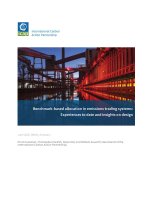
 DateCategoryPapers & Reports
DateCategoryPapers & ReportsBenchmark-based allocation in emissions trading systems: Experiences to date and insights on design
Learn moreTeaser + metatagsBenchmarking can protect against carbon leakage while setting incentives to reduce emissions, but their design entails complex trade-offs. This paper explores benchmark-based industrial allocation design and experiences, using insights from existing ETSs, and their implications for abatement and low-carbon investment incentives.
-
DateCategoryPapers & ReportsCover Image
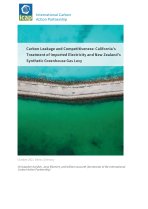
 DateCategoryPapers & Reports
DateCategoryPapers & ReportsCarbon Leakage and Competitiveness: California’s Treatment of Imported Electricity and New Zealand’s Synthetic Greenhouse Gas Levy
Learn moreTeaser + metatagsGiven factors such as constraints in free allocation policy for some ETS jurisdictions, other ways of addressing concerns about carbon leakage and competitiveness are likely to continue attracting interest, and these approaches may increasingly focus on cross-border trade. California and New Zealand offer practical experiences with such policies that may be instructive for other jurisdictions navigating border-related climate measures.
-
DateCategoryPapers & ReportsCover Image
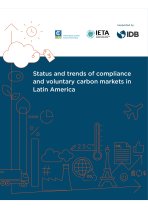
 DateCategoryPapers & Reports
DateCategoryPapers & ReportsStatus and Trends of Compliance and voluntary carbon markets in Latin America
Learn moreTeaser + metatagsAn overview of the steps that jurisdictions in Latin America have taken to plan, design and implement carbon pricing. Available in English, Spanish and Portuguese.
-
DateCategoryPapers & ReportsCover Image
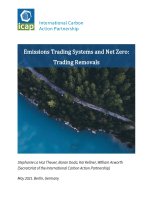
 DateCategoryPapers & Reports
DateCategoryPapers & ReportsEmissions Trading Systems and Net Zero: Trading Removals
Learn moreTeaser + metatagsThis paper seeks to understand the challenges that net zero emission targets could present for the operation of emissions trading systems (ETSs) and develops a series of models for the possible interactions between ETSs and removal units from negative emissions technologies (NETs).
-
DateCategoryPapers & ReportsCover Image
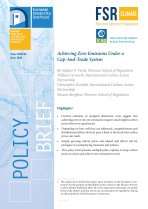
 DateCategoryPapers & Reports
DateCategoryPapers & ReportsAchieving Net Zero under a Cap-and-Trade System
Learn moreTeaser + metatagsCurrent estimates suggest achieving net-zero emissions will require much higher carbon prices. What challenges could arise? A brief on the possible policy options to address them.
-
DateCategoryPapers & ReportsCover Image
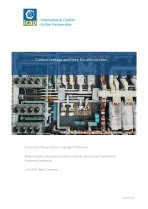
 DateCategoryPapers & Reports
DateCategoryPapers & ReportsCarbon Leakage and Deep Decarbonization Report
Learn moreTeaser + metatagsA review of current efforts to address carbon leakage, assess the risk of carbon leakage, and policies to strengthen decarbonization efforts in light of ongoing leakage vulnerability and the push to achieve net-zero emissions.
